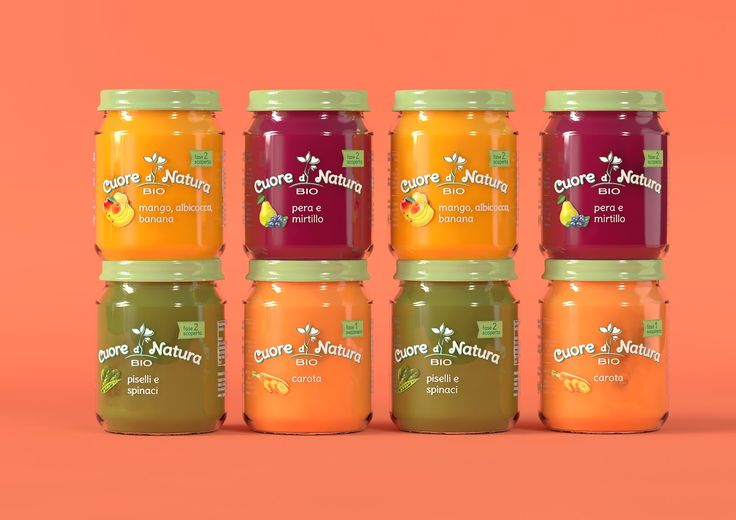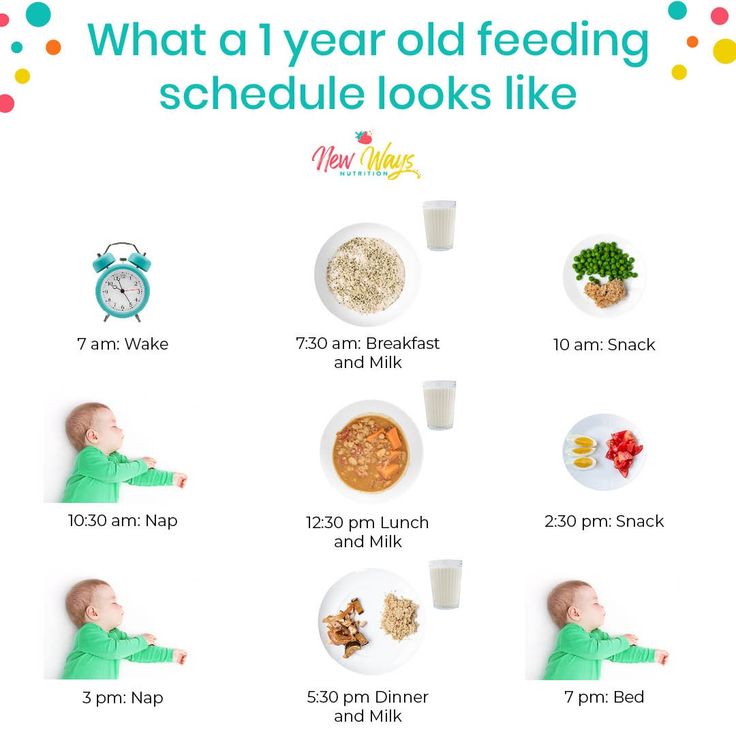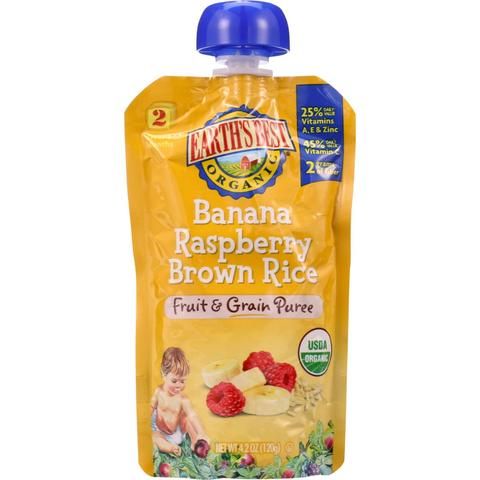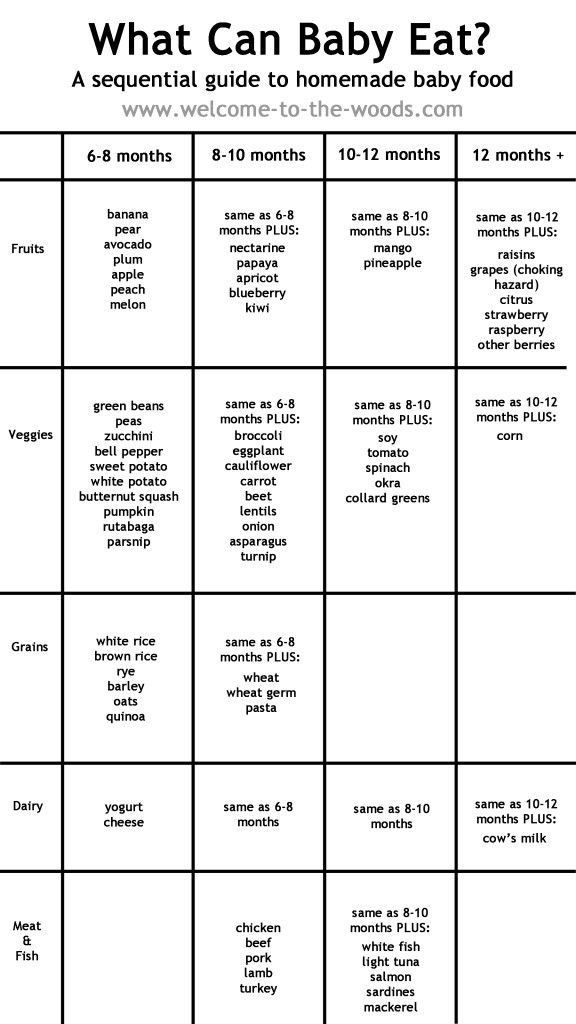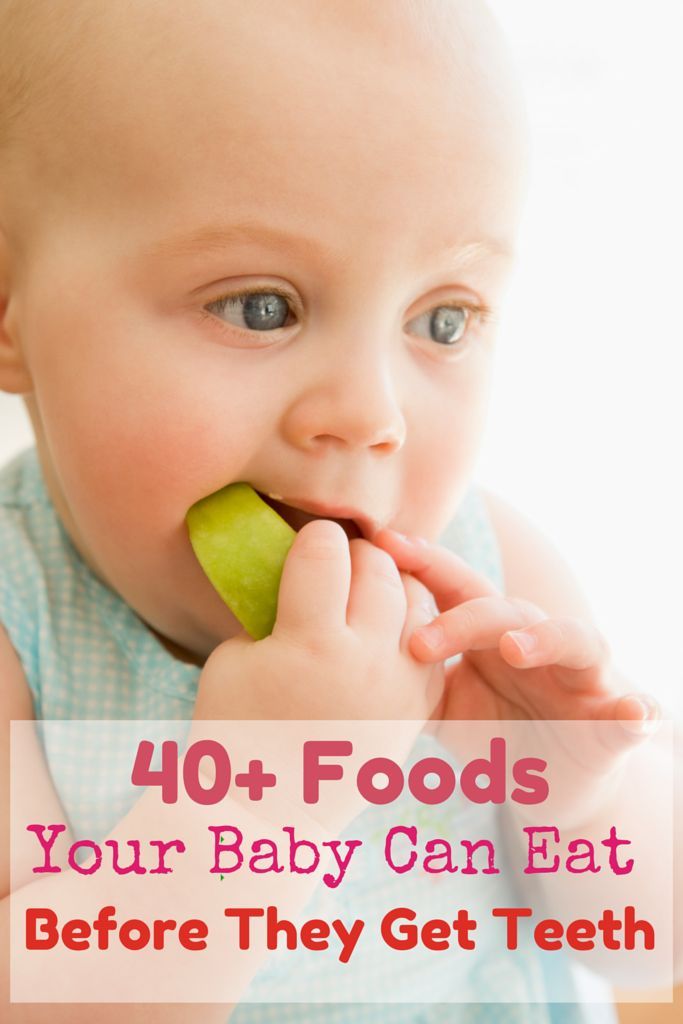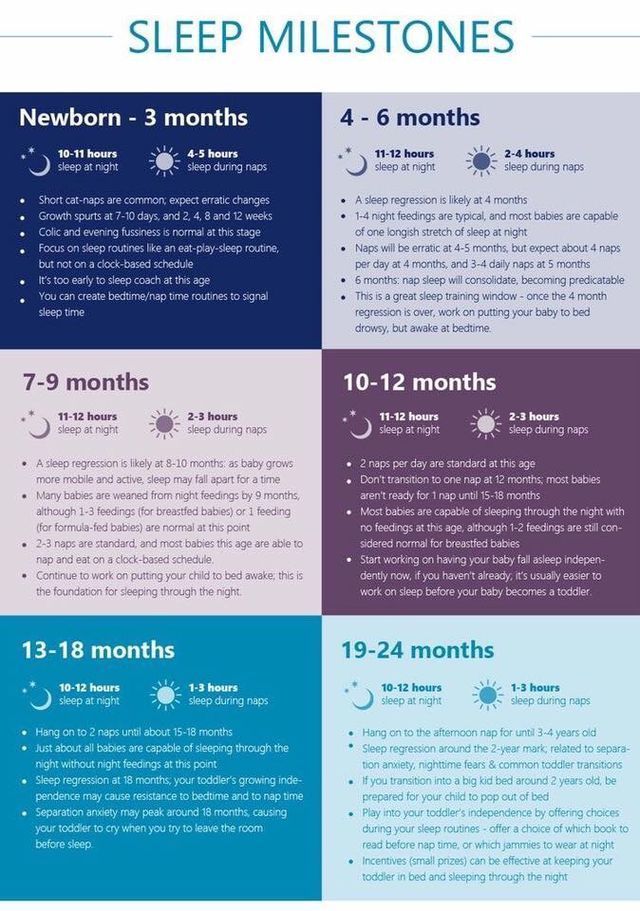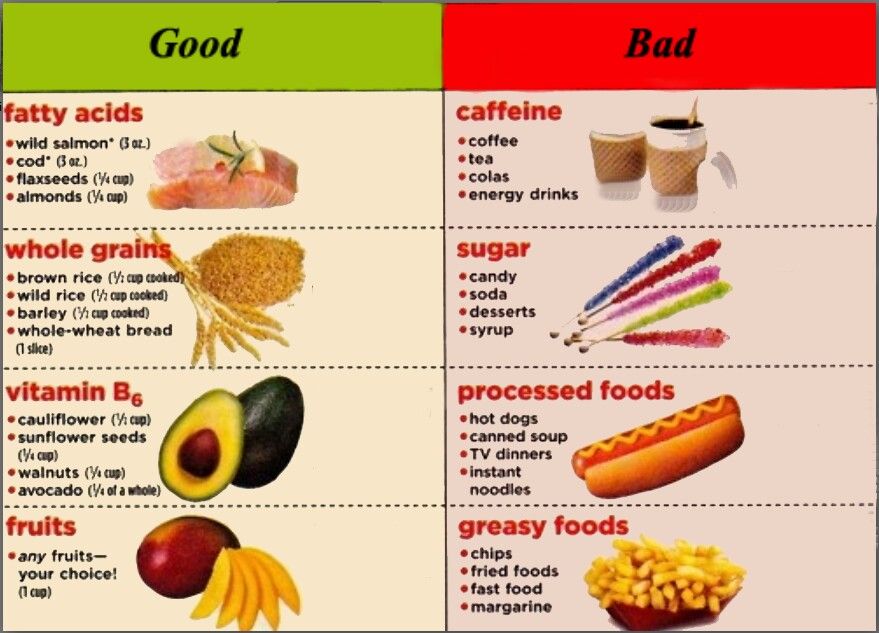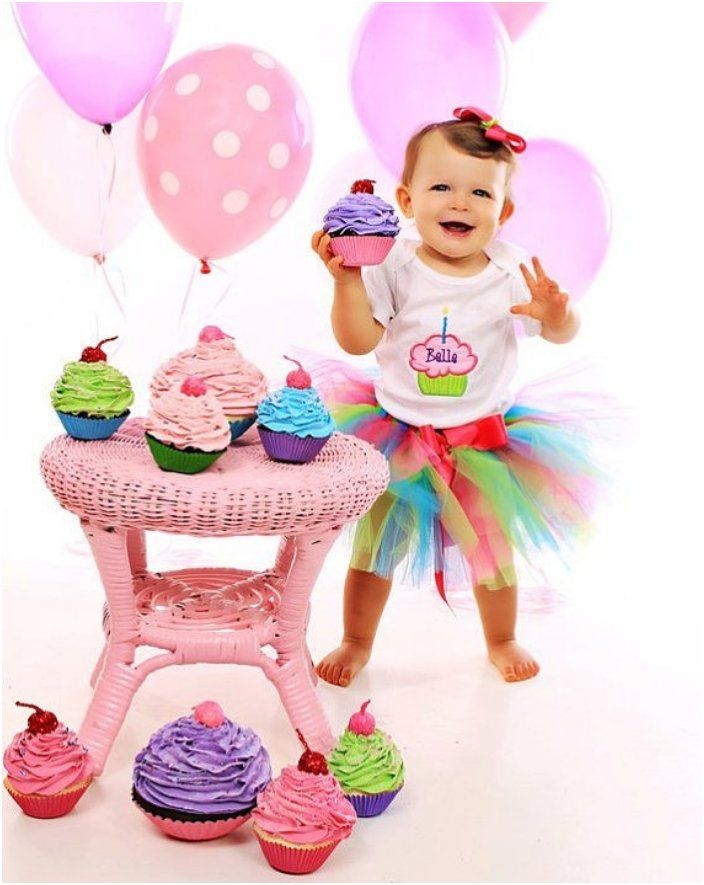Mushrooms for baby food
Can Babies Eat Mushrooms?
Mushrooms are a flavorful treat that come in a great variety of textures and tastes for your baby, and you, to enjoy.
Here are a few words of caution about mushrooms, information about their healthy benefits, and a few ideas for serving them.
When it comes to mushrooms, stick to what you can buy in a store. Mushrooms are a fungus, an organism that feeds on organic material, and they can grow just about anywhere.
There are plenty of types of mushrooms in the wild that will make you very sick, but the mushrooms sold in your grocery store or farmers market won’t be one of them.
There is no strict recommendation from medical organizations or the government against eating mushrooms, once babies start eating solid food. Many organic, healthy eating, and parenting websites suggest waiting until children are about 10 to 12 months old before introducing mushrooms into their diet. Some pediatricians and natural food experts recommend always cooking mushrooms before eating them, especially for children.
Researchers have found a number of benefits to including mushrooms in your diet, and that goes for babies too.
Some mushrooms have more potassium than a banana. They also are a good source of iron, fiber, and selenium, an important mineral. If they have been exposed to light while they grow, several varieties of mushrooms are one of the best plant sources of vitamin D you can eat. Vitamin D helps build strong bones and may help fight against colon cancer.
A small percentage of people may be allergic to mushrooms. The risk is particularly low when eating mushrooms but because mushrooms are a fungus, they release spores into the air. Those spores can cause allergies similar to the kind caused by pollen or mold.
Mushrooms can be a good option for a baby who needs soft foods that can be cut to a safe-to-eat size. Mushrooms have a lot of flavor, some wonderful vitamins and minerals, and are soft enough to be eaten by someone who only has a few teeth. If you decide to serve them raw to your baby, be sure to wash them carefully first.
Mushrooms can be a main dish, side dish, or a great addition to any dish. They can be sautéed, grilled, roasted, baked, or cooked just about any way you can think of.
Here are a few kid-friendly recipes from around the Web that feature mushrooms deliciously.
- Sauté mushrooms with butter or olive oil, garlic, and a little salt and eat them as a meal with rice or pasta, a side dish, a topping for meats, or with other veggies like spinach, green beans, or potatoes.
- Cute meatloaves in a muffin tin are full of veggies for healthy kids — and those following a paleo diet!
- Swap the meat for a portabello mushroom in burgers or cheesesteaks.
- This creamy pasta with mushrooms and spinach can stand on its own for a meal, or make a great side dish.
- Three ingredients in a slow cooker and you’ve got a tasty meal with portabello mushrooms and chicken.
- Let’s be real: Just about anything tastes good inside a tortilla with some melted cheese! Mushroom quesadillas are a good, friendly introduction for your little one.

- Rice, peas, mushrooms: Mushroom risotto is based on three simple ingredients with a delicious, comforting flavor.
And, of course, mushrooms make a great addition on pizza or in tomato sauce.
Remember that if your baby or toddler doesn’t love mushrooms on the first try, switch up the recipes and try another day. It’s worth it to get your little one to like these flavorful, vitamin- and mineral-rich disease fighters into their diet.
Can Babies Eat Mushrooms? Benefits, Risks And Recipes
This umami-rich veggie offers vital nutrients and health-promoting compounds to babies.
Research-backed
MomJunction believes in providing reliable, research-backed information to you. As per our strong editorial policy requirements, we base our health articles on references (citations) taken from authority sites, international journals, and research studies.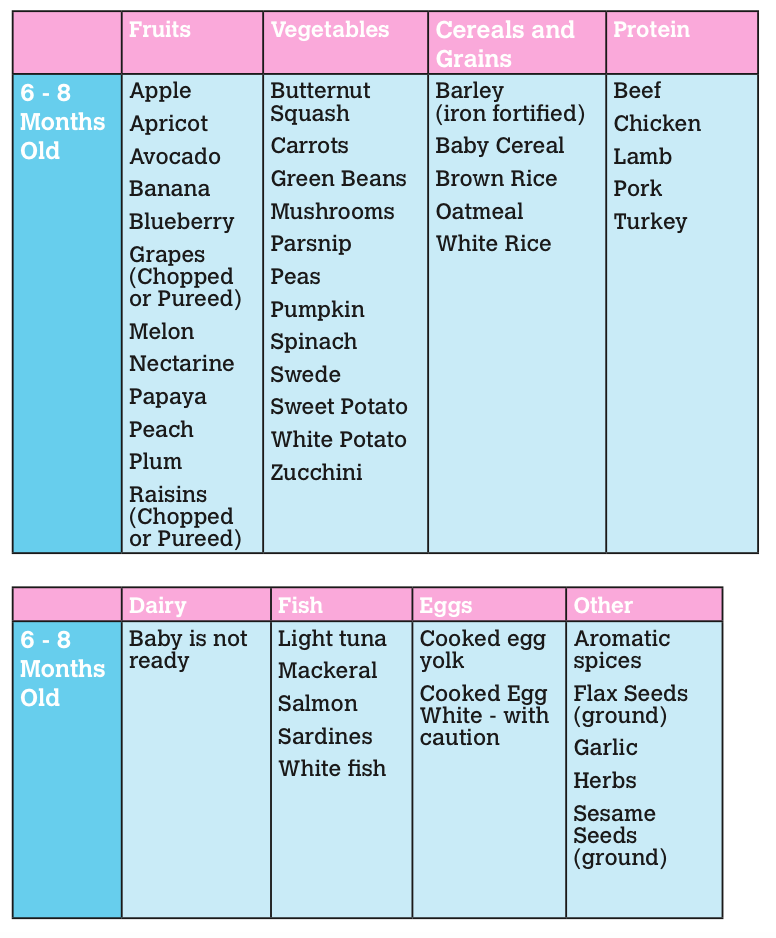 However, if you find any incongruencies, feel free to write to us.
However, if you find any incongruencies, feel free to write to us.
Image: Shutterstock
Mushrooms for babies can make a healthy addition to the solid food diet. The edible fungi come in various varieties, but only a few are edible. Some species of mushrooms, such as Amanita phalloides (Death cap), are poisonous, while Amanita muscaria (Fly Agaric) may cause stomach cramps and vomiting if eaten raw.
You must pick the right variety of mushrooms if you wish to include them in your baby’s diet. In this post, we acquaint you with the right age to introduce mushrooms to babies, their benefits, and precautions to observe while feeding them.
Mushrooms And Their Edible Varieties
There are approximately 2,000 different species of edible mushrooms (1). Out of these, the most popular edible species is Agaricus bisporus.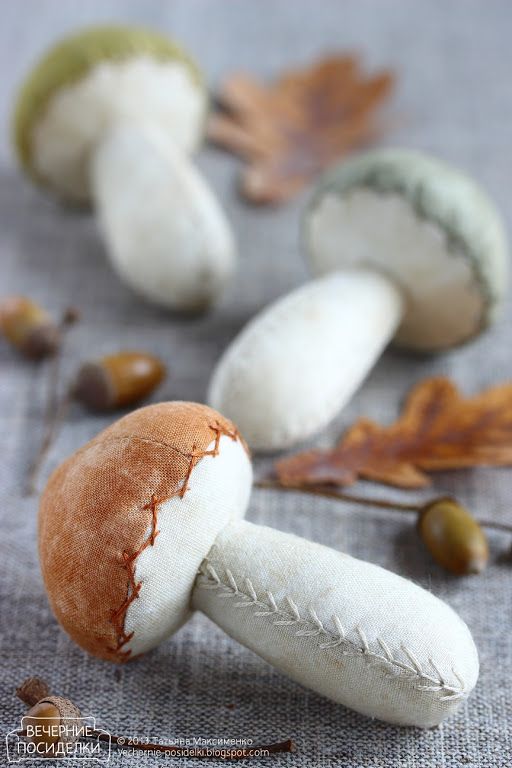 It is sold in three different varieties: white button, cremini, and portobello (2).
It is sold in three different varieties: white button, cremini, and portobello (2).
The white button mushroom is the most commonly consumed mushroom in the world, followed by cremini or baby bellas, portobello, shiitake, straw, oyster, chanterelle, morel, porcini, and enoki (1) (3). Most of these varieties can be grown at home. However, there are some wild varieties, which are grown in the wilderness and available in retail stores and farmer’s markets.
Is It Safe For Babies To Eat Mushrooms?
It is safe for babies to eat mushrooms when they are purchased from a retail store. This is important as certain wild varieties of mushrooms can cause discomfort to babies, while some others might be life-threatening.
Point to consider
There are no approved home tests to differentiate between edible mushrooms and poisonous mushrooms. So it is recommended not to use random mushrooms from farms or wild mushrooms for cooking (22).
Related: 6-Month-Old Baby's Food Chart And Recipes
At What Age Can Babies Have Mushrooms?
There are no clinical or non-clinical recommendations regarding when babies can eat mushrooms.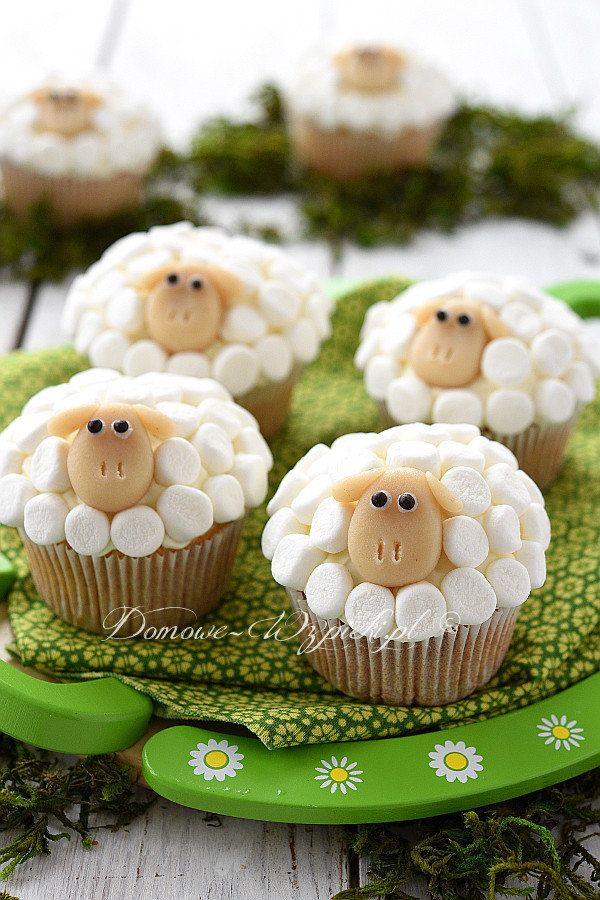 Generally, mushrooms are given to babies once they are six months old. However, some parents might want to wait until 10-12 months of age. It is best to consult a pediatrician or pediatric dietitian before giving mushrooms to a baby.
Generally, mushrooms are given to babies once they are six months old. However, some parents might want to wait until 10-12 months of age. It is best to consult a pediatrician or pediatric dietitian before giving mushrooms to a baby.
Never feed raw or uncooked mushrooms Raw mushrooms should not be eaten raw by anyone, any age as they might cause discomfort and have an increased risk of poisoning. Mushrooms, when picked right and cooked well, can supplement your baby’s diet with a number of vital nutrients.
Nutritional Value Of Mushrooms
Mushrooms are much valued for their umami (savory) taste and unique nutritional composition. Each variety and sub-type has a unique nutritional profile. Below is a general nutritional profile of mushrooms with the quantities of key nutrients (4) (5).
- Water content: 80 – 90%
- Dietary fiber: 8 – 10%
- Protein: 12 – 35%
- Vitamins: C, B1, B2, B3, B9, and Ergosterol (precursor of vitamin D2)
- Minerals: Potassium, sodium, and phosphorus
Mushrooms are rich in certain bioactive compounds like polysaccharides, tri-terpenoids, low molecular weight proteins, glycoproteins, and immunomodulating compounds.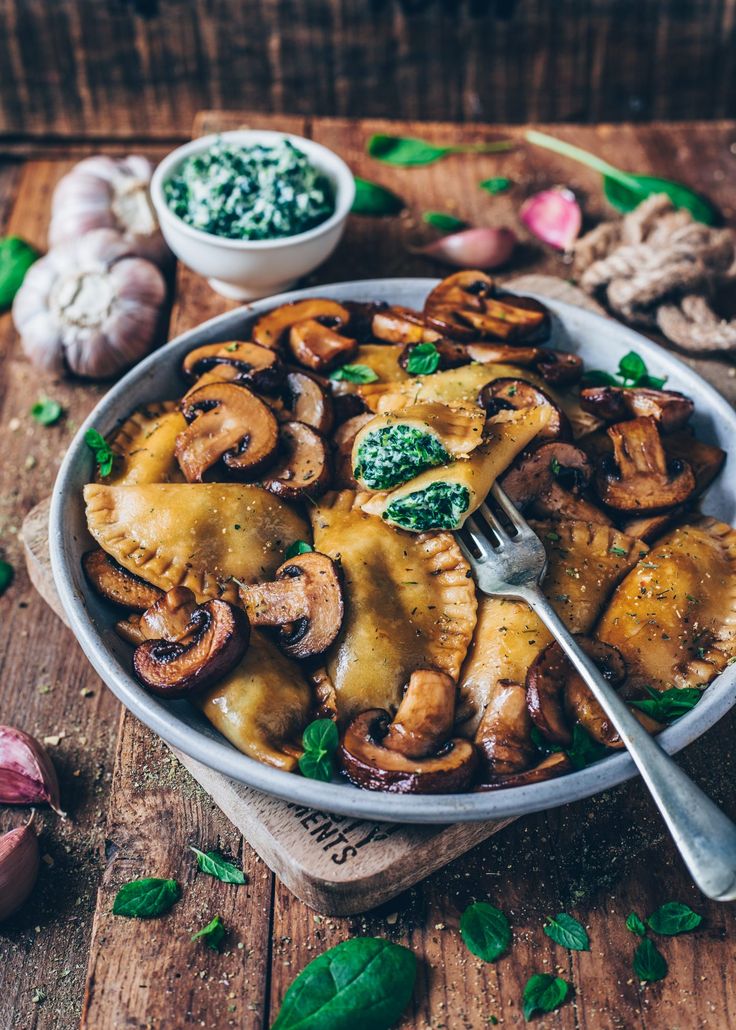 It also contains negligible fat and is considered free of cholesterol.
It also contains negligible fat and is considered free of cholesterol.
Related: 5 High-Fiber Foods For Babies To Eat
Health Benefits Of Mushroom For Babies
The wide array of nutrients in mushroom can provide the following health benefits (6)
1. Immunity: Mushrooms possess immunity-strengthening properties. These properties are attributed to bioactive compounds such as polysaccharides (beta-glucan), triterpenoids, and minerals present in it (7). These compounds are known to boost innate and acquired immunity by activating different types of immune system cells (5).
2. Heart health: The fermentable fiber Beta glucan is a form of soluble dietary fiber that’s been strongly linked to improving cholesterol and boosting heart health and oligosaccharides work as prebiotics (5). Enhanced prebiotic content of the diet stimulates the growth of beneficial microbiota that might help attenuate conditions such as obesity and cancer in the long run (8).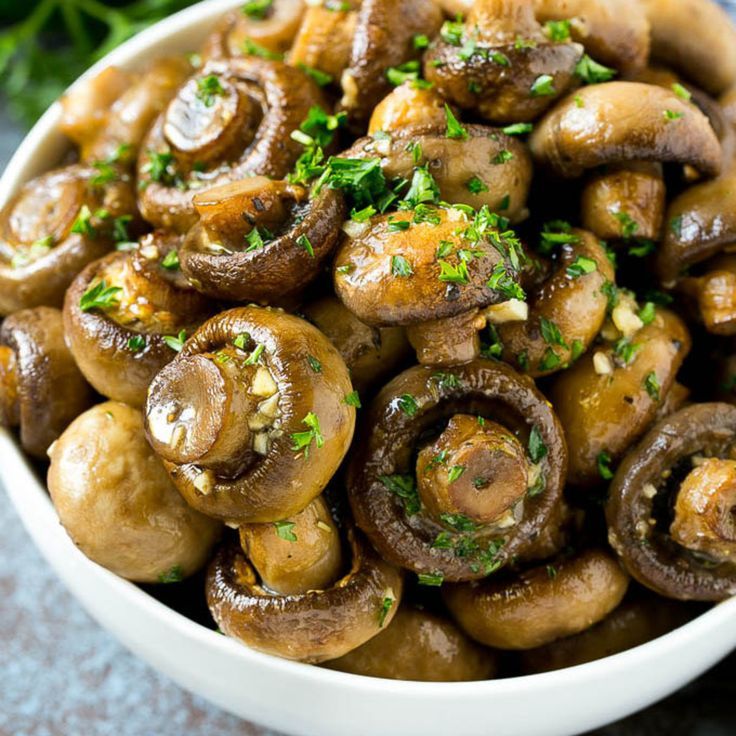
Image: iStock
3. Antioxidant effects: In vitro studies have shown that mushrooms have potential antioxidant effects when consumed on a regular basis. The polysaccharides present in mushrooms are attributed to its antioxidative effects (9). Besides polysaccharides, mushrooms have various vitamins, minerals, and ergothioneine, which is a sulfur-containing essential amino acid that has antioxidative effects (10).
4. Anti-inflammatory: A review paper published in the Journal of Food Chemistry referred to edible mushrooms as “superfoods” and recommended it as a valuable addition to the daily diet (11). The presence of bioactive compounds such as polysaccharides, proteoglycans, terpenoids, phenolic compounds, steroids, and lectins are attributed to mushroom’s anti-inflammatory property (12).
5. Antimicrobial: A study published in the Iranian Journal of Pharmaceutical Research showed that mushrooms have strong antimicrobial activity in vitro (13).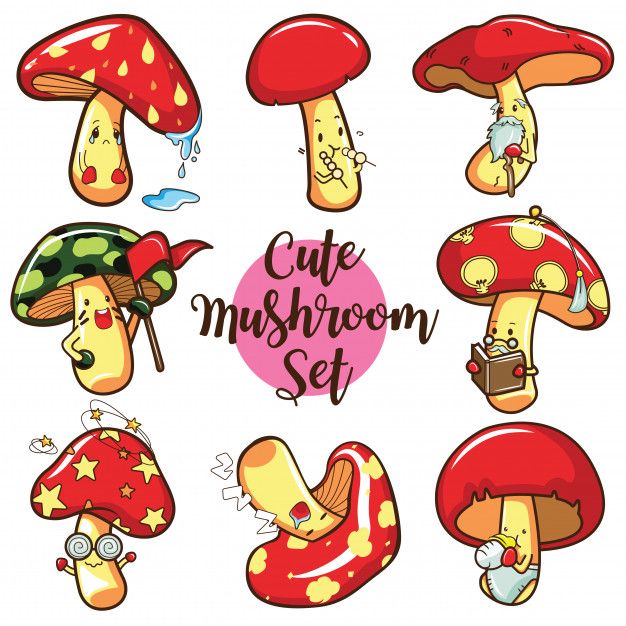 Also, mushrooms are considered to have an indirect antiviral effect due to the immunostimulating activity of polysaccharides (14). Mushrooms could also have a potential antifungal activity that could prove useful. However, more research is warranted to understand the mechanism of action.
Also, mushrooms are considered to have an indirect antiviral effect due to the immunostimulating activity of polysaccharides (14). Mushrooms could also have a potential antifungal activity that could prove useful. However, more research is warranted to understand the mechanism of action.
6. Hepatoprotective effects: Various studies show possible hepatoprotective (liver-protecting) effects of mushrooms (15). The studies also validate the use of mushrooms in folk medicine. Thus, the addition of mushroom in the baby’s diet could keep the liver healthy in the long run.
Health fact
Mushrooms can provide vitamin D and support immune system and digestive health if consumed correctly (23).
Mushrooms have their benefits, but it is also vital to know the potential risks of mushrooms.
Related: Mineral Oil For Babies: Safety, How To Use And Side Effects
Health Risks Of Eating Mushroom For Babies
Consumption of mushrooms can present with the following risks to a baby.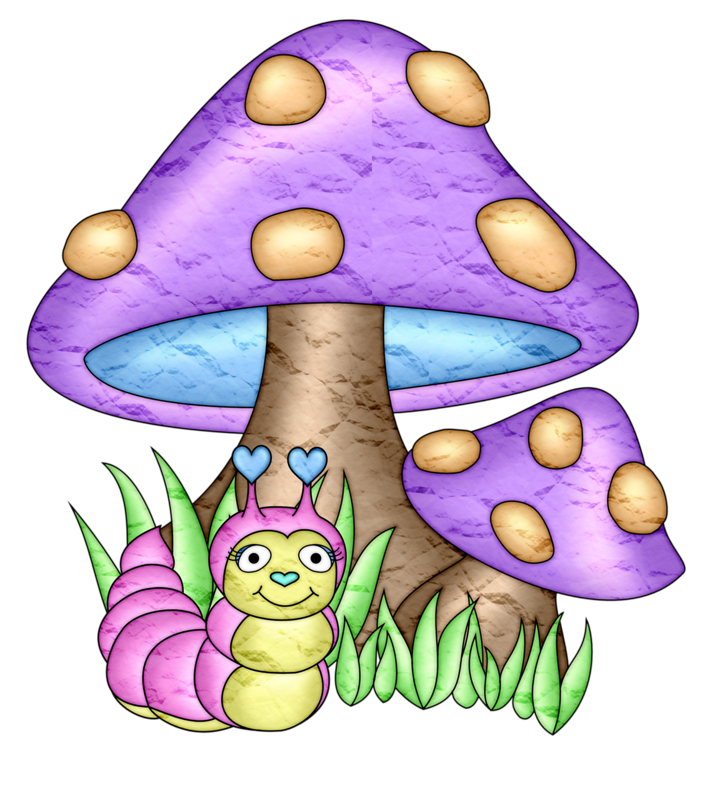
1. Allergy: Mushroom allergy can be air-borne, oral, and contact based. Lycoperdonosis is a rare respiratory illness caused by inhalation of spores of the Lycoperdon mushroom (16). Similarly, rare but possible cases of mushroom allergy caused by ingestion have been documented (17). Mushrooms are considered “antigenically-rich,” which means that they can contain more than one allergen (18). Still, mushrooms rarely cause an IgE-mediated hypersensitivity reaction (19).
Image: iStock
2. Poisoning: Mushroom poisoning most commonly occurs due to the consumption of a wild mushroom. However, it could also happen due to the consumption of raw or undercooked mushrooms. The toxins that cause poisoning in such cases are largely unknown (20). Shiitake dermatitis is an example of a selective rash type that can occur when raw or undercooked shiitake mushrooms are consumed (21).
Mushrooms purchased from a reputable farm or retail store can be safely consumed.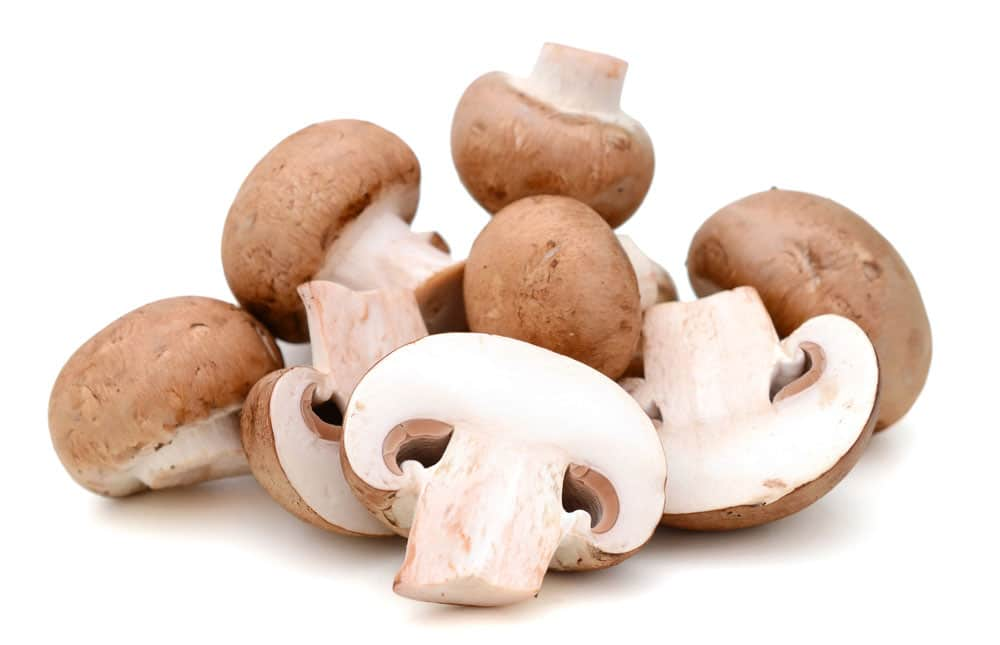 However, it is always wise to take precautions while selecting, storing, and preparing mushrooms to avoid any adverse effects.
However, it is always wise to take precautions while selecting, storing, and preparing mushrooms to avoid any adverse effects.
Related: 5 Types Of Skin Allergies In Babies, Treatment & Prevention
Tips To Select, Store, And Prepare Mushrooms
The following precautions can help mitigate the risks of consuming mushrooms.
- Only buy mushrooms marketed as edible. Never choose wild mushrooms for babies.
- Pick fresh mushrooms that have a firm texture, even color, and tightly closed caps.
- Clean mushrooms properly before cooking. To clean, soak them in water for ten minutes and then rub-off any dust or dirt visible on its surface.
- Cut off any visibly damaged section of the mushroom.
- Some mushrooms, such as shiitakes, need to have their stem trimmed before cooking.
- Fresh and cleaned mushrooms can be stored in a paper bag for a week. However, it is best to use them within a week.
Quick fact
It is recommended to eat only fresh mushrooms brought from the supermarket to avoid the risk of mushroom poisoning (22).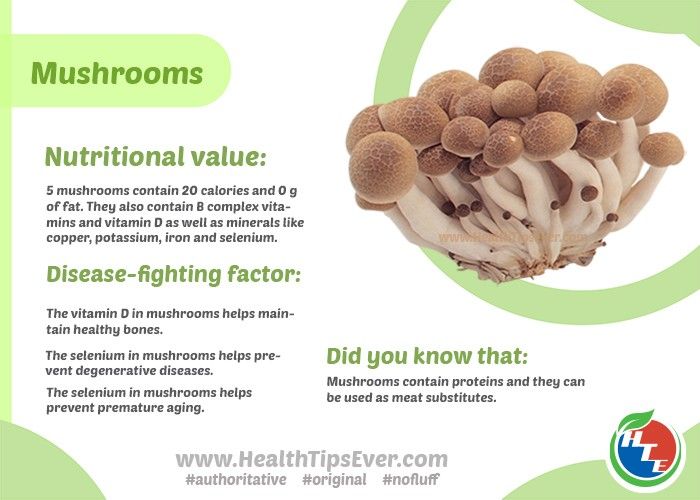
Mushrooms can be a valuable addition to your baby’s diet. Below are some recipes that you might like to try to complement your baby’s daily meals.
Mushroom Recipes For Babies
Mushrooms can be added in soups, sautéed pieces as finger foods, mushroom curry added to brown rice, or grilled mushroom with dips. Below are a few recipes that you might like to try.
1. Mushroom soup
Image: Shutterstock
Mushroom soup can be a warm, comforting meal for your baby at around six months of age. Apart from being pleasing to the gut, it is filled with nutrients that are crucial for baby’s growth and development.
You will need:
- 300 grams shiitake mushroom (freshly chopped)
- 700 grams oyster mushrooms (freshly chopped)
- 1/2cup sage leaves (freshly chopped)
- 3 large shallots (sliced)
- 4 cloves garlic (chopped)
- 3tsp thyme (minced)
- 2 bay leaves
- 1tsp freshly ground black pepper
- 1/3tsp turmeric
- Salt (to taste)
- Extra-virgin olive oil
- Water
How to:
- Take a thick bottom iron pan and put it on medium heat.
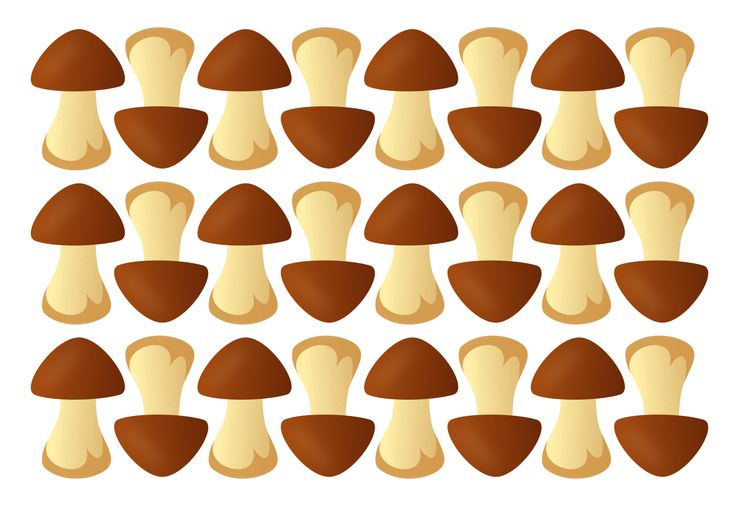
- Once the pan is heated, pour two to three tablespoons of oil in it.
- As oil gets warm, add shallots, and sauté for five minutes or until they turn light brown.
- While stirring constantly, add salt and garlic and cook for another five minutes.
- Now add thyme, sage, and mushrooms and mix everything well.
- Once everything is mixed well. Add bay leaves, turmeric, and water. Cover the pot, reduce the heat to low, and let the content in the pot simmer for 20-25 minutes.
- After 25 minutes, check for mushrooms, if they are tender, switch off the flame and remove bay leaves. Keep the pot aside and let it come to room temperature.
- Now, carefully blend the mixture for a couple of minutes or until you get a velvety, smooth paste. Add water to adjust consistency as the soup should be creamy, not too runny or too thick.
- Serve it warm with mashed potatoes.
Related: 6 Key Benefits Of Using Olive Oil For Babies
2. Stuffed cheese mushrooms
Image: Shutterstock
This recipe is a perfect addition to your baby’s finger food choices.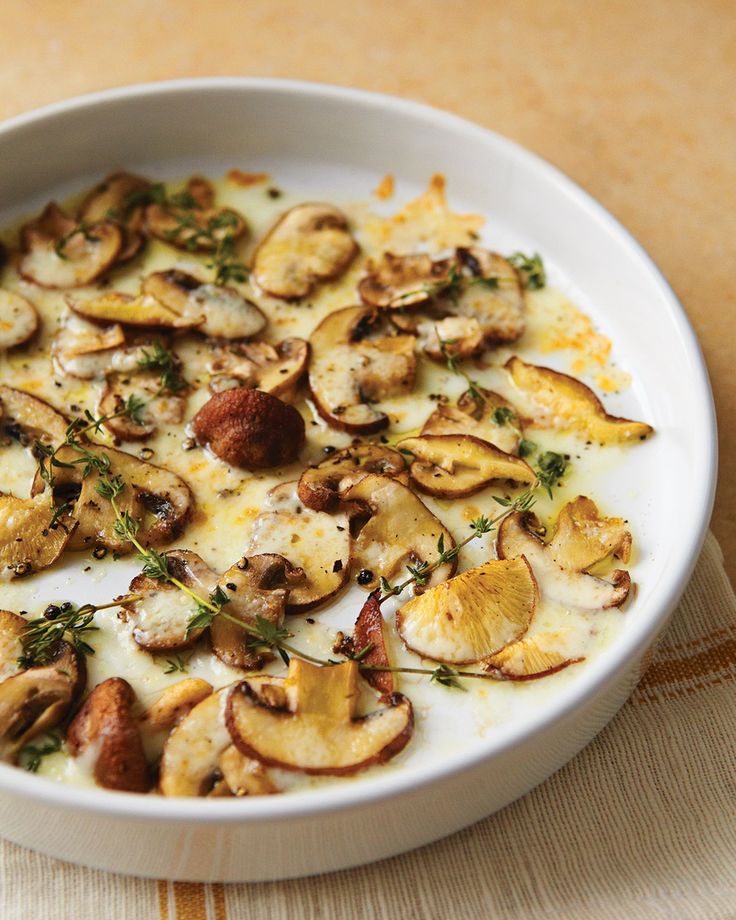 It has the goodness of mushrooms and the richness of cheese. This recipe is packed with optimum nutrients for growing babies.
It has the goodness of mushrooms and the richness of cheese. This recipe is packed with optimum nutrients for growing babies.
You will need:
- 200 grams white button mushrooms
- 1 onion (finely chopped)
- ¼cup cottage cheese
- 1/2cup mozzarella cheese (grated)
- 2tbsp bread crumbs
- 2 green chilies (finely chopped)
- 1/4cup coriander leaves (chopped)
- 2tbsp olive oil
- 1/2tsp tomato sauce
- 1/2tsp black pepper powder
- 1/2tsp oregano powder
- salt to taste
How to:
- Preheat the oven to 180 degrees Celsius.
- Meanwhile, wash mushrooms well in hot water mixed with salt. Clean them with fingers to ensure proper cleaning. Dry them with a kitchen towel.
- Now, twist the mushroom stems carefully and gently remove them from the mushroom caps. Chop these stems finely for the stuffing.
- Heat olive oil on medium heat in a pan.
- Once the oil gets warm, add garlic, green chilies, and chopped onions.
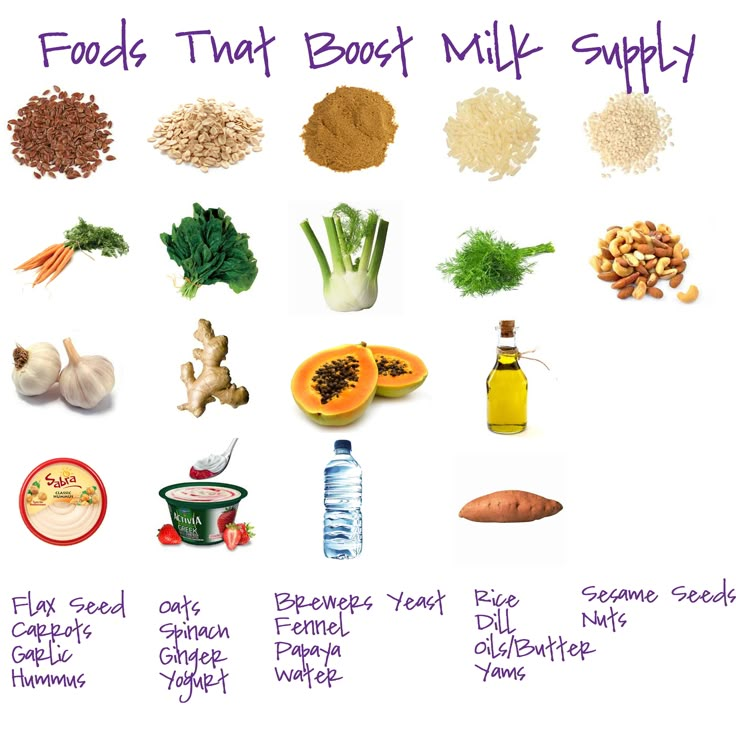 Stir for a minute or until the onions become golden brown.
Stir for a minute or until the onions become golden brown. - Now, add the finely chopped mushroom stems in the mixture and fry for a few more minutes, till the mushroom stems have released all water. At this point, the mixture will look dry.
- Add pepper powder, salt, and bread crumbs. Stir well for another minute and remove the pan from the flame.
- Take a bowl and transfer the sauteed mushroom stem stuffing into it. Add grated cheese, oregano, and tomato sauce to it.
- Now, take the mushroom caps and stuff it with the stuffing. Press the filling tightly so that it doesn’t come out. Sprinkle little grated cheese again on the top.
- Take a baking tray, grease it with a few drops of olive oil. Now place all the mushrooms on it, leaving some space in between.
- Bake the mushrooms at 180 degrees celsius for 20 minutes or till you see the cheese melted with a golden crust.
- Serve these mushrooms hot with a dip or sauce of your choice.
Both these recipes can be included in any of the meals to supplement your baby’s diet in a wholesome manner.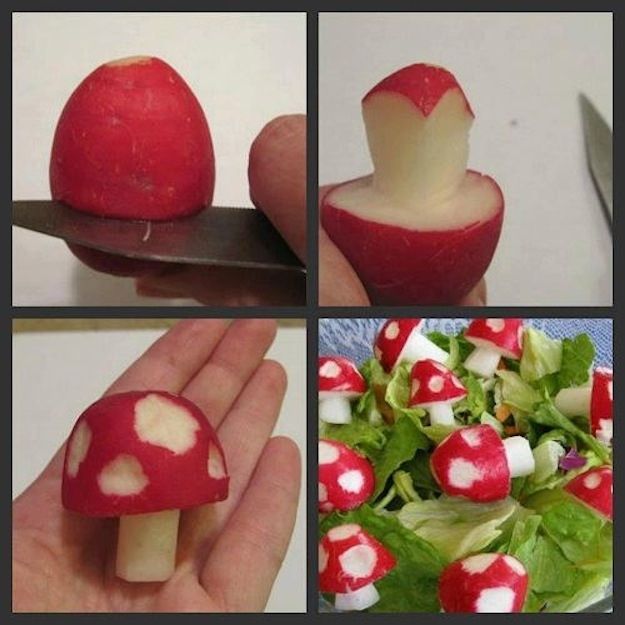
1. How do I thicken mushroom puree for my baby?
You may add boiled and mashed potatoes, sweet potatoes, peas, pumpkin, or cheese to thicken your baby’s mushroom puree.
2. How long does mushroom puree last in the fridge?
Mushroom puree might last for about five days in the fridge. However, giving stale or frozen food to babies is not recommended, especially for those who are quite young and have been recently introduced to solids.
3. Can I steam mushrooms for the baby?
Yes, you can steam mushrooms for your baby as they become tender, which is easier for babies to digest.
Many parents consider mushrooms for babies since it is a great way to add micronutrients, macronutrients, and other bioactive compounds to their diet. Store-bought mushrooms contain proteins, minerals, vitamins, fiber, polysaccharides, and immunomodulating compounds. These nutrients enhance immunity, improve heart health, and have anti-inflammatory effects on the body. However, since all babies are different, you may introduce a small quantity of cooked mushrooms initially and check for any allergies.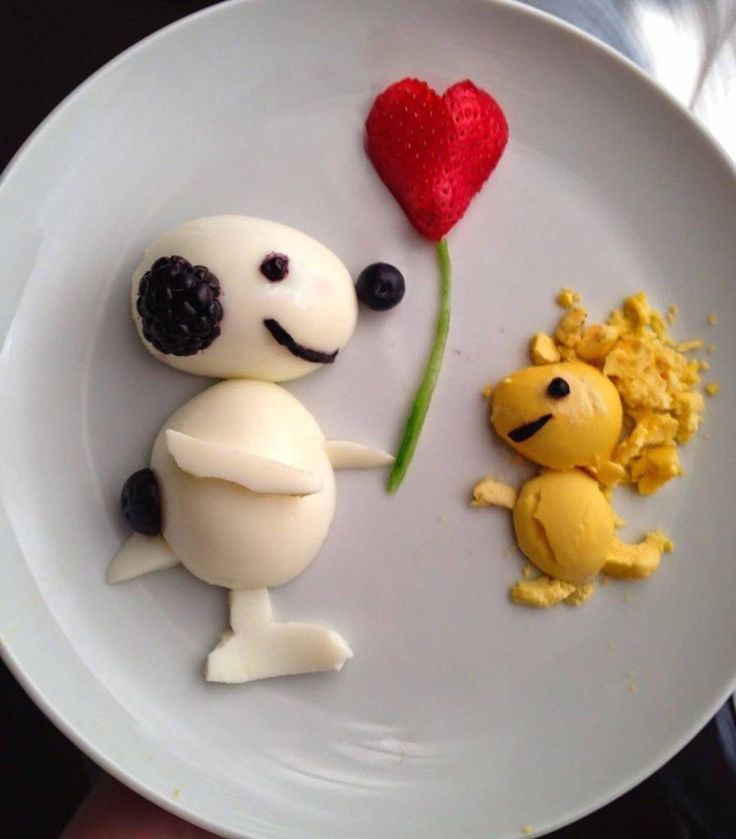 If it suits your baby well, feed your baby mushroom in the form of soups or as part of other dishes.
If it suits your baby well, feed your baby mushroom in the form of soups or as part of other dishes.
Key Pointers
- Mushrooms are rich in water, protein, and other nutrients that help in boosting the baby’s immunity and keeping their heart healthy.
- Babies can consume thoroughly cooked mushrooms from retail stores.
- It is important to consult a doctor before feeding them mushrooms as they may develop allergic reactions or food poisoning.
References:
MomJunction's articles are written after analyzing the research works of expert authors and institutions. Our references consist of resources established by authorities in their respective fields. You can learn more about the authenticity of the information we present in our editorial policy.
1. Mary Jo Feeney et al.; Mushrooms—Biologically Distinct and Nutritionally Unique Exploring a “Third Food Kingdom; National Center For Biotechnology Information
2. Mushrooms; Food Source Information; Colorado State University
3.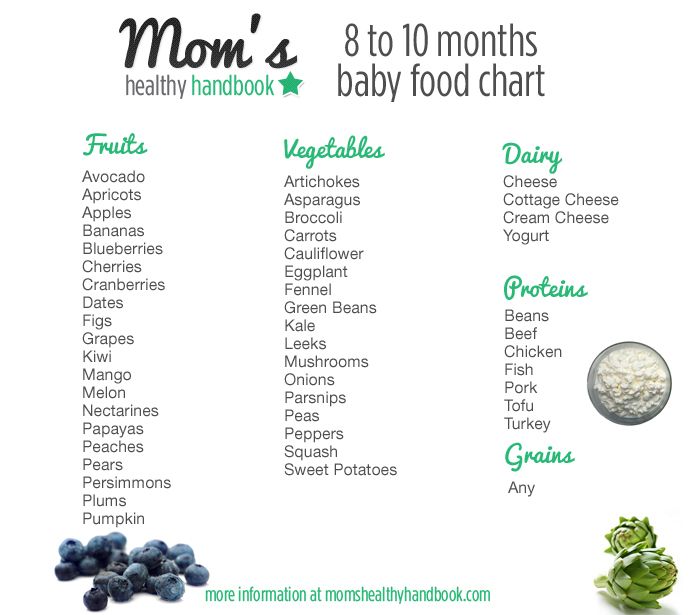 Fun with Funghi: Garnish Your Meals with Mushrooms; Eat Right; Academy of Nutrition and Dietetics
Fun with Funghi: Garnish Your Meals with Mushrooms; Eat Right; Academy of Nutrition and Dietetics
4. Magnificent Mushrooms; American Society for Nutrition
5. Kaniyaiah Manikandan; Nutritional and Medicinal values of Mushrooms; Researchgate
6. Jill Balla Kohn; Are Mushrooms a Significant Source of Vitamin D?; Journal of the Academy of Nutrition And Dietetics
7. Jiao-Jiao Zhang et al.; Bioactivities and Health Benefits of Mushrooms Mainly from China; National Center For Biotechnology Information
8. Muthukumaran Jayachandran et al.; A Critical Review on Health Promoting Benefits of Edible Mushrooms through Gut Microbiota; National Center For Biotechnology Information
9. Mendel Friedman; Mushroom Polysaccharides: Chemistry and Antiobesity, Antidiabetes, Anticancer, and Antibiotic Properties in Cells, Rodents, and Humans; MDPI
10. Mary Jo Feeney et al.; Mushrooms—Biologically Distinct and Nutritionally Unique Exploring a “Third Food Kingdom; National Center For Biotechnology Information
11.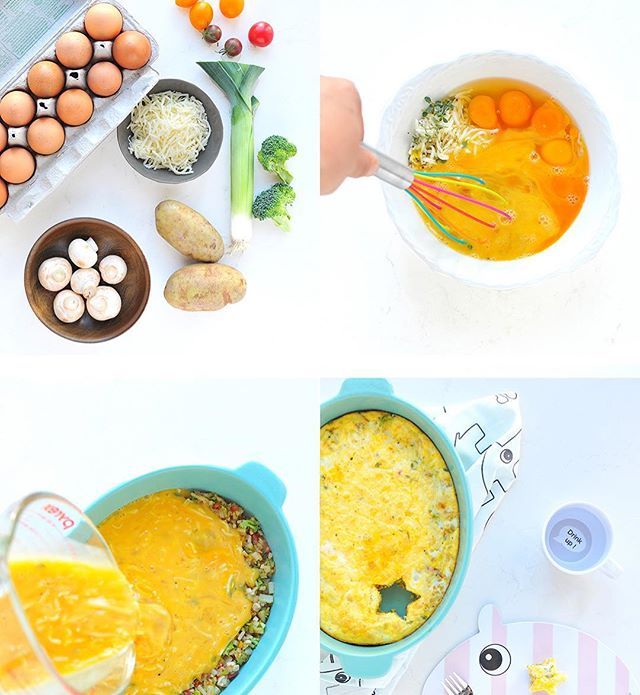 Muszyńska B et al.; Anti-inflammatory properties of edible mushrooms: A review.; National Center For Biotechnology Information
Muszyńska B et al.; Anti-inflammatory properties of edible mushrooms: A review.; National Center For Biotechnology Information
12. Elsayed A. Elsayed et al.; Mushrooms: A Potential Natural Source of Anti-Inflammatory Compounds for Medical Applications; National Center For Biotechnology Information
13. Marijana Kosanić et al.; Mushrooms as Possible Antioxidant and Antimicrobial Agents; National Center For Biotechnology Information
14. Ulrike Lindequist et al.; The Pharmacological Potential of Mushrooms; National Center For Biotechnology Information
15. Andréia Assunção Soares et al.; Hepatoprotective Effects of Mushrooms; National Center For Biotechnology Information
16. Respiratory Illness Associated with Inhalation of Mushroom Spores — Wisconsin, 1994; CDC
17. C. Inmaculada et al.; Tatjana Fischer et al.; Rare Ingestive Food Allergy to Mushroom Boletus badius; Acta DV; Aspergillus & Aspergillosis Website
18.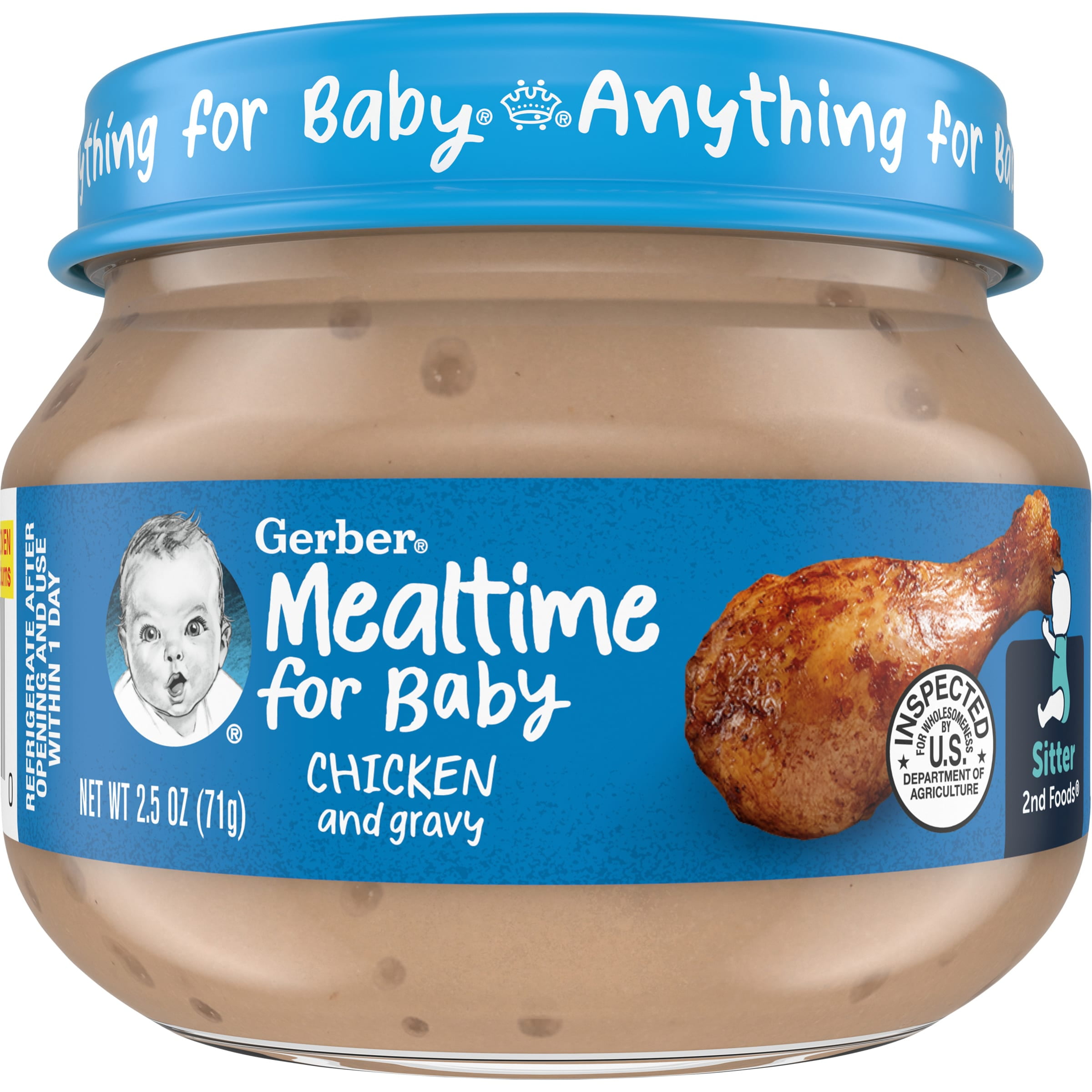 Koivikko A and Savolainen J; Mushroom allergy.; National Center For Biotechnology Information
Koivikko A and Savolainen J; Mushroom allergy.; National Center For Biotechnology Information
19. Oyindamola Stephanie Kayode et al.; Mushroom allergy: Case series; The Journal of Allergy and Clinical Immunology
20. Mushroom Poisoning Syndromes; The North American Mycological Association
21. Shiitake flagellate dermatitis; DermNet NZ
22. Mushroom Poisoning; BetterHealth Channel
23. 7 Health Benefits Of Mushrooms; UCLA Health
The following two tabs change content below.
- Reviewer
- Author
Is It Safe To Eat Persimmons During Pregnancy?
Is It Safe To Eat Persimmons During Pregnancy?
Is It Safe To Eat Instant Noodles During Pregnancy?
Is It Safe To Eat Instant Noodles During Pregnancy?
Can You Take Elderberry During Pregnancy?
Can You Take Elderberry During Pregnancy?
Indian Diet During Pregnancy - A Healthy Daily Diet Chart
Indian Diet During Pregnancy - A Healthy Daily Diet Chart
10 Yummilicious Yogurt Recipes For Your Baby
10 Yummilicious Yogurt Recipes For Your Baby
10 Amazing Benefits Of Carrot And Its Juices During Pregnancy
10 Amazing Benefits Of Carrot And Its Juices During Pregnancy
When Can Babies Eat Kiwi, And Recipes To Try
When Can Babies Eat Kiwi, And Recipes To Try
Cucumber For Babies: Right Age, Benefits, And Recipes
Cucumber For Babies: Right Age, Benefits, And Recipes
Loss Of Appetite In Babies: Symptoms, Causes, And Tips To Improve
Loss Of Appetite In Babies: Symptoms, Causes, And Tips To Improve
Mushrooms in baby food | Keys to health
Your compass in a sea of wellness information
MOTHER'S SCHOOL7 years ago
704 views
3 min
Everyone knows that mushrooms contain many essential nutrients for the human body.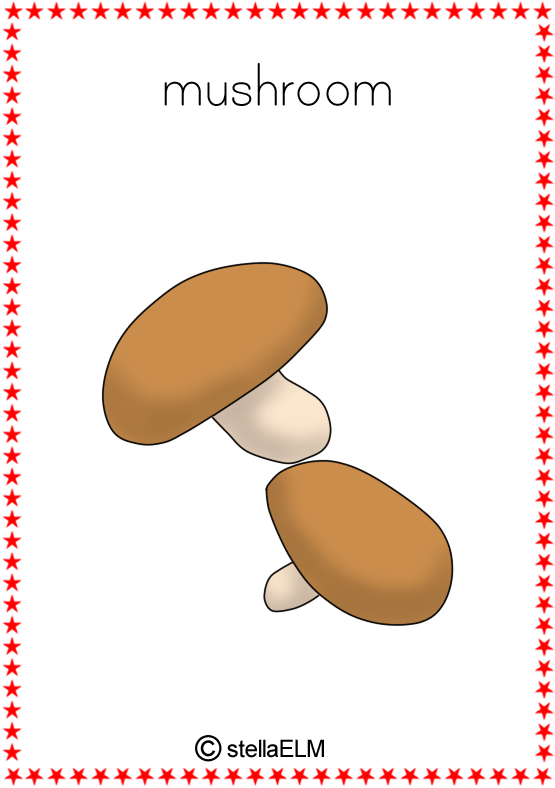 No wonder they have been called "forest meat" since ancient times. But despite this, most doctors answer the question: "Can children eat mushrooms?" - categorically answers: "No." What is the reason for such a ban? nine0012
No wonder they have been called "forest meat" since ancient times. But despite this, most doctors answer the question: "Can children eat mushrooms?" - categorically answers: "No." What is the reason for such a ban? nine0012
Mushrooms contain chitin. By the way, the shell of animals consists of chitin. This is a stable substance that is not absorbed even by the body of an adult. A child's digestive tract is formed only by the age of 7. Therefore, mushrooms are a very heavy food for a child's digestive tract. Chitin also stubbornly prevents the body from absorbing other nutrients, which are so abundant in mushrooms. For this reason, only about 10% of the nutrients contained in mushrooms are absorbed by the human body. nine0003
Any mushroom is a sponge that absorbs a lot of substances, including harmful ones, from the environment. There is an opinion: since for a long time in Rus' mushrooms were eaten from a very early age and in considerable quantities, even in our time this product can be consumed without fear by both adults and children.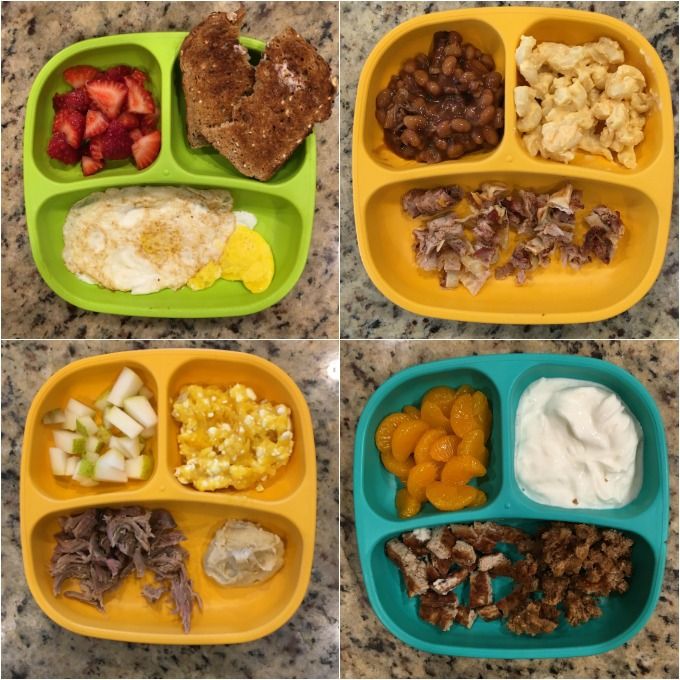 However, here it is worth considering the ecological situation that was before, which means the absence of toxins from the surrounding atmosphere in mushrooms. In addition, we do not know the statistical data on the causes of infant mortality for that period of time. nine0003
However, here it is worth considering the ecological situation that was before, which means the absence of toxins from the surrounding atmosphere in mushrooms. In addition, we do not know the statistical data on the causes of infant mortality for that period of time. nine0003
There is no common point of view among modern pediatricians and nutritionists on the age at which mushrooms can be given without risk to the health of the child. The spread is quite a long period: from 2 to 12 years. To summarize all the tips, they will look like this:
Mushrooms should not be given to children under two years of age in any form. Some doctors say that industrially cultivated mushrooms can be introduced in small quantities into children's diets from the age of two. But only if you prepare a sauce based on them or add them only for taste to various dishes. In this case, the amount of chitin that has entered the children's body will be negligible. nine0003
Some experts recommend introducing mushrooms into the children's menu only from the age of 5, and then very gradually.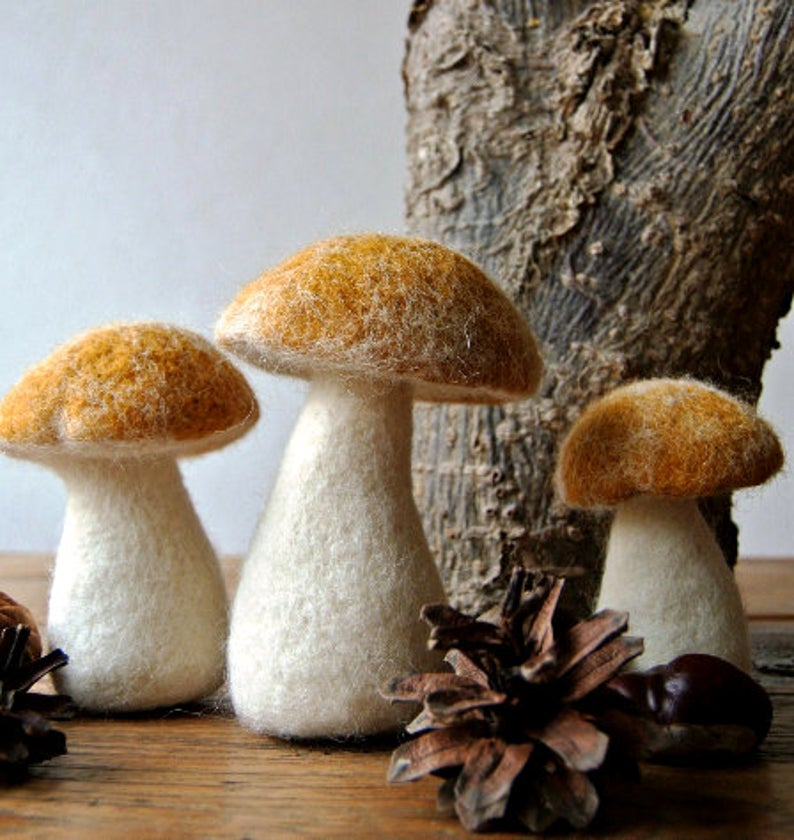 First - in the form of seasoning for the main dishes "for smell", sauces.
First - in the form of seasoning for the main dishes "for smell", sauces.
Most pediatricians say that 7 years of age is the starting point for introducing mushrooms into the diet of children. However, all the above recommendations are still valid: you need to start with cultivated mushrooms (oyster mushrooms and champignons), carefully processed, in small quantities, gradually. nine0003
If a child has even minor deviations in health, and even more so, related to the digestive tract, mushrooms are allowed to be introduced into their menu no earlier than 10 years of age.
More and more often among pediatricians there is an opinion: mushrooms can only be consumed by children from the age of 12.
As you can see, even among experts there are many opinions about the age at which mushrooms can be given to a child. In fact, everything here is very individual. One child ate a mushroom and did not have any negative consequences. And the other just tried it and disrupted the work of the gastrointestinal tract for the rest of his life.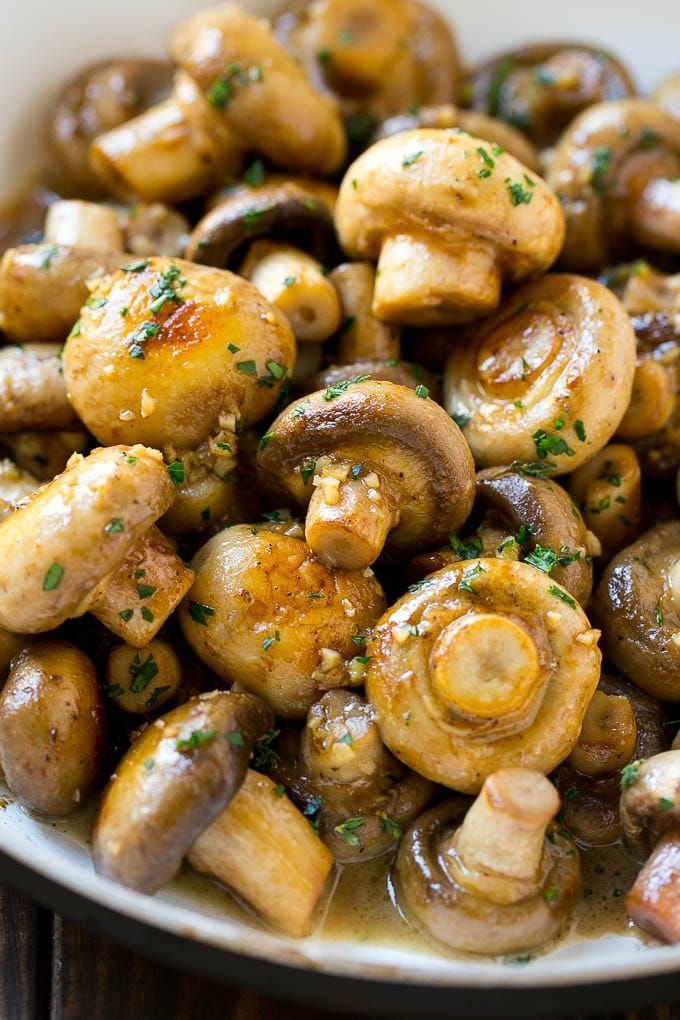 The third, having eaten the most “harmless” mushroom, poisoned himself. nine0003
The third, having eaten the most “harmless” mushroom, poisoned himself. nine0003
If you still decide to introduce mushrooms into your child's diet, then you need to start with broths and sauces, then gradually move on to soup. The optimal varieties of mushrooms for the initial introduction of this product to the children's menu are oyster mushrooms and champignons. Then - white mushrooms and mushrooms. It is advisable not to give fried, salted and pickled mushrooms to children at all. The later they try such heavy food for the stomach, the better it will be for them.
It is up to you, dear parents, to give mushrooms to children or not. May God give each of you wisdom on how to preserve and strengthen the health of your children! nine0003
Tatyana Kudashova,
Educational psychologist, Master of Public Health
Newspaper “Your Keys to Health” No. 8 (56) August 2015
Share
You may also like
at what age and what mushrooms to give
Sooner or later, all parents face the burning question - is it possible to give mushrooms to a child, when and how best to do it.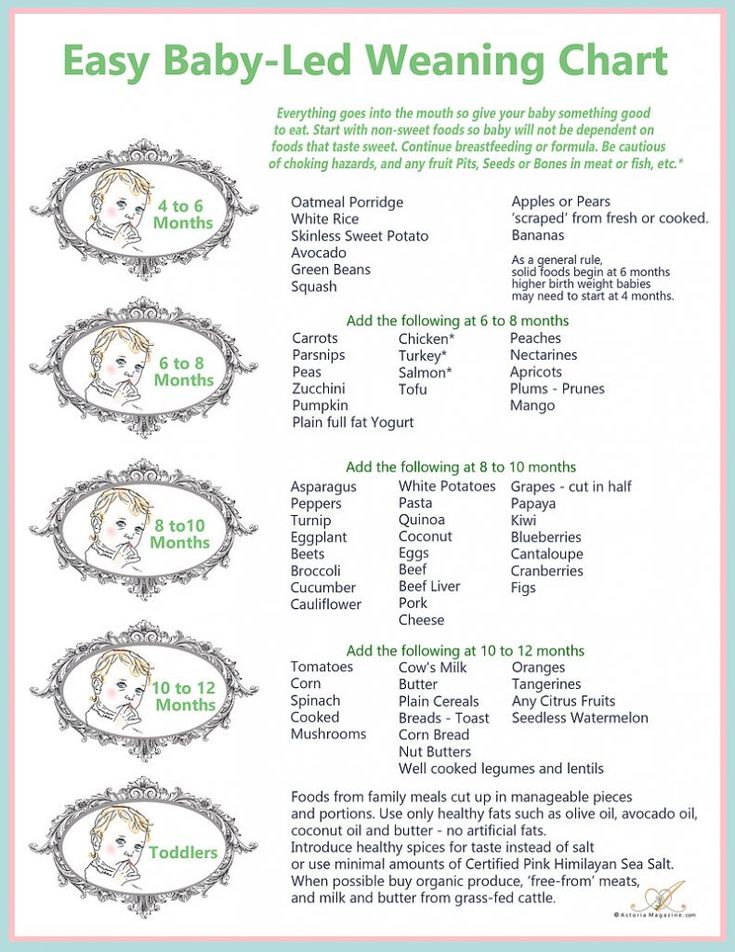 Who can say with accuracy that mushrooms are good for children? Nutritionists believe that these organisms, combining the features of plants and animals, can be tasted in order to qualitatively expand the taste horizons. Mushrooms contain a significant amount of vitamins A, B, D, PP, as well as magnesium, potassium, phosphorus, copper, and iron. However, due to the high proportion of chitin (a natural compound from the cell wall of fungi with allergic potential), the product is difficult to digest. nine0003
Who can say with accuracy that mushrooms are good for children? Nutritionists believe that these organisms, combining the features of plants and animals, can be tasted in order to qualitatively expand the taste horizons. Mushrooms contain a significant amount of vitamins A, B, D, PP, as well as magnesium, potassium, phosphorus, copper, and iron. However, due to the high proportion of chitin (a natural compound from the cell wall of fungi with allergic potential), the product is difficult to digest. nine0003
Healthy adults can eat a full range of edible mushrooms, including pickled, salted, dried, and powdered mushrooms. Children are allowed to introduce this product into the diet carefully, gradually, after consultation with a pediatrician, only in boiled form. A large amount of protein can disrupt the digestive system, and in fact the enzymatic system of the gastrointestinal tract acquires its full value only by the age of 14.
Why children shouldn't eat mushrooms
Biologists explain: at an early age, children shouldn't eat mushrooms, because a huge amount of substances accumulate in the fruiting body during the growth period, including those dangerous to health.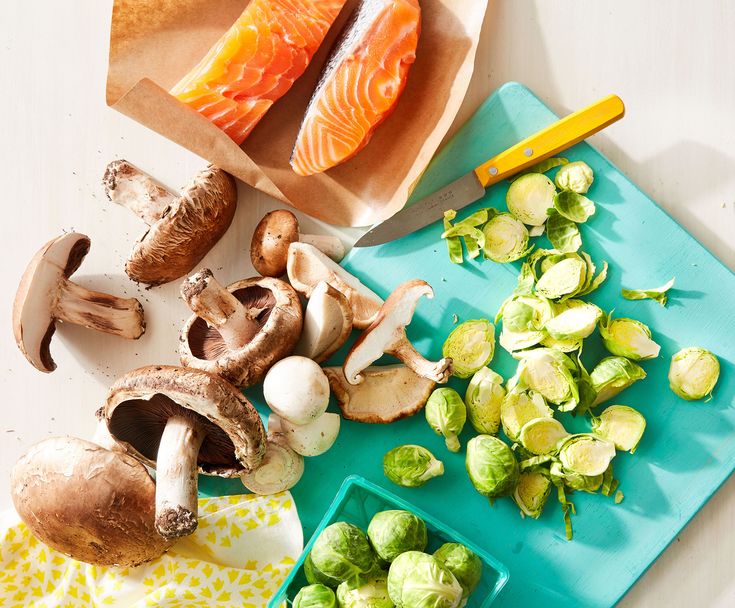 Mushrooms are united under the ground by a network of thin branched threads, this rhizome runs hundreds of square meters in area. The body of the fungus feeds on substances from the soil, and the condition of the soil depends on the ecological situation in the growing area. There is another option: mushrooms grow on trees, so they have fewer harmful elements. nine0003
Mushrooms are united under the ground by a network of thin branched threads, this rhizome runs hundreds of square meters in area. The body of the fungus feeds on substances from the soil, and the condition of the soil depends on the ecological situation in the growing area. There is another option: mushrooms grow on trees, so they have fewer harmful elements. nine0003
Chemical analysis detects heavy metals, pesticides, radionuclides in many forest mushrooms. Mercury, lead, cadmium, copper, zinc and manganese - if present in the soil, all this accumulates in the mushroom body, like in a sponge. Regular consumption of such mushrooms in food can cause acute or chronic poisoning. Contraindications to mushroom nutrition include:
- chronic pancreatitis;
- dysbacteriosis;
- individual intolerance, allergy. nine0065
Until the age of 3 children should not mushroom mushrooms grown in the wild.
Artificial ones can be tasted, for example, champignons or oyster mushrooms, but subject to a number of conditions:- in minimal quantities;
- carefully observing the reaction of the body;
- the best cooking method - boiled - as part of soups, sauces, cereals.
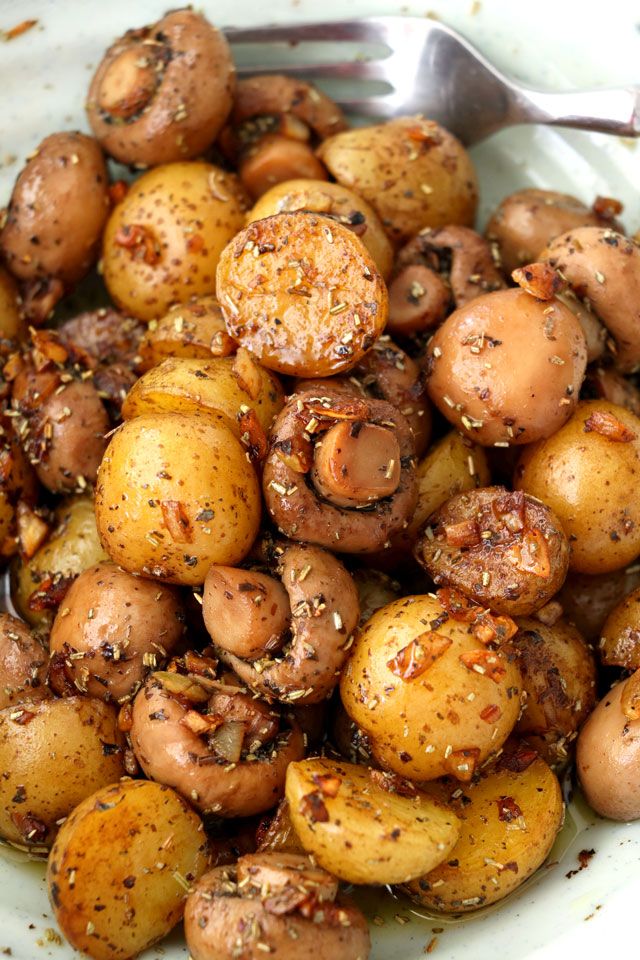
Also, children should not try certain mushrooms under 7 years of age: boletus, mushrooms, chanterelles, white fungus, mushrooms, russula. They have a minimal amount of nutrients, so the risk-benefit ratio is not justified. It is strictly forbidden for kids to try pickled and salted products; in combination with salt and vinegar, such dishes will be a strong blow to the young gastrointestinal tract. nine0003
Listening to the careless relatives of the older generation, some parents wonder if a child can take mushrooms from trusted sources a year. You should not succumb to "positive" extraneous experience; such a heavy product will not benefit a one-year-old child. In most cases, giving mushrooms to children under one year old is extremely dangerous, so keep an eye on the menu at home and away. If you really want to experiment with a new dish from 1 year of age, visit a pediatrician - he will tell you why mushrooms are not allowed for children under 7 years old. nine0003
Mushrooms for children from what age
If you are interested in what mushrooms can be given to children at what age, pay attention to the plate.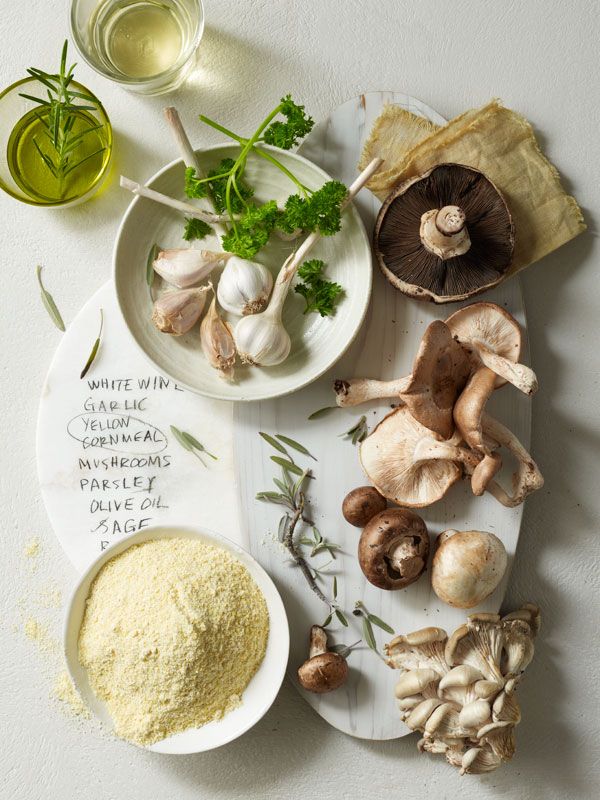
| When | What kind of food can you eat |
| 2 years | a small piece of champignon as part of a children's vegetable soup, the product cannot be a separate dish |
| 3 - 5 years | small children are allowed to eat artificial oyster mushrooms and mushrooms; mushrooms for children after three years should be pre-soaked in water for 5 to 12 hours, well peeled or blanched (or boiled) |
| 6 - 7 years old | you can start feeding some forest mushrooms - porcini, boletus, boletus; in no case should they be overripe and wormy; it is assumed that you perfectly know how to distinguish edible from inedible; mushrooms are good with vegetable puree for garnish |
| after seven | can already be given to a child in the form of fillings for pies, pancakes and pizza |
From the age of 14, giving mushrooms to children is the best option in the presence of chronic health problems.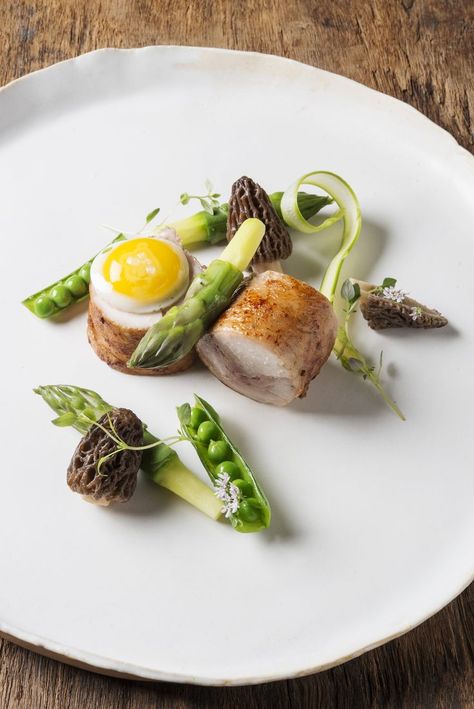 And then carefully, after the approval of this decision by a pediatrician, gastroenterologist or nutritionist. nine0003
And then carefully, after the approval of this decision by a pediatrician, gastroenterologist or nutritionist. nine0003
What kind of mushrooms can be given to children
There is a direct answer to the question, what kind of mushrooms can be given to children - better grown artificially, purchased in a good supermarket. By the way, oyster mushrooms and champignons are not subject to mandatory certification on the territory of the Russian Federation, however, manufacturers receive a laboratory conclusion with a product test report. Chanterelle mushrooms for a child of preschool age are highly undesirable, as well as porcini mushrooms, mushrooms, honey agaric. All forest mushrooms carry the risk of poisoning, no matter how experts in "silent hunting" you consider yourself, you have no right to risk the health of the baby. nine0003
For the first time a child is given a taste of high-quality white mushrooms from the age of seven to fourteen years. High-quality means fresh, handpicked in a clean forest, but not near railways and highways.



